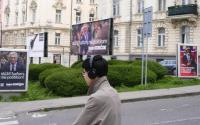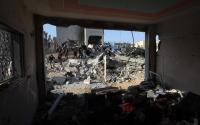Common Dreams / Published on Tuesday, July 15, 2003 by the New York Timesby Nicholas D. Kristof
After I wrote a month ago about the Niger uranium hoax in the State of the Union address, a senior White House official chided me gently and explained that there was more to the story that I didn't know.
Yup. And now it's coming out.
Based on conversations with people in the intelligence community, this picture is emerging: the White House, eager to spice up the State of the Union address, recklessly resurrected the discredited Niger tidbit. The Central Intelligence Agency objected, and then it and the National Security Council negotiated a new wording, attributing it all to the Brits. It felt less dishonest pinning the falsehood on the cousins.
What troubles me is not that single episode, but the broader pattern of dishonesty and delusion that helped get us into the Iraq mess — and that created the false expectations undermining our occupation today. Some in the administration are trying to make George Tenet the scapegoat for the affair. But Veteran Intelligence Professionals for Sanity, a group of retired spooks, issued an open letter to President Bush yesterday reflecting the view of many in the intel community that the central culprit is Vice President Dick Cheney. The open letter called for Mr. Cheney's resignation.
Condi Rice says she first learned of former Ambassador Joseph Wilson's fact-finding trip to Niger during a TV interview, presumably when George Stephanopoulos asked her on "This Week" on June 8 about a column by me describing the trip. (Condi, you're breaking my heart — you didn't read that column itself? How about if I fax you copies of everything I write, so you don't miss any, and you fax me everything you write?)
Actually, I have to agree with Ms. Rice that the focus on that single sentence in the State of the Union address is a bit obsessive. It was only 16 words, attributed in a weaselly way that made it almost accurate, and as any journalist knows well, mistakes do get into print.
So the problem is not those 16 words, by themselves, but the larger pattern of abuse of intelligence. The silver lining is that the spooks are so upset that they're speaking out.
The Defense Intelligence Agency has had town hall meetings in which everyone was told not to talk to journalists (thanks, guys, for naming me in particular). One insider complains: "In the most recent meeting, we also were told that, as much as possible, we should avoid `caveat-ing' our intelligence assessments. . . . Forget nuance, forget fine distinctions; they only confuse these guys. If that isn't a downright scary dumbing-down of our intelligence product, I don't know what is."
Intelligence isn't just being dumbed down, but is also being manipulated — and it's continuing. Experts say the recent firefight on the Syrian-Iraq border involved not Saddam Hussein or a family member, as we were led to believe, but just some Iraqi petroleum smugglers. Moreover, Patrick Lang, a former senior D.I.A. official, says that many in the government believe that incursion was an effort by ideologues to disrupt cooperation between the U.S. and Syria.
While the scandal has so far focused on Iraq, the manipulations appear to be global. For example, one person from the intelligence community recalls an administration hard-liner's urging the State Department Bureau of Intelligence and Research to state that Cuba has a biological weapons program. The spooks refused, and Colin Powell backed them.
Then there's North Korea. The C.I.A.'s assessments on North Korea's nuclear weaponry were suddenly juiced up beginning in December 2001. The alarmist assessments (based on no new evidence) continued until January of this year, when the White House wanted to play down the Korean crisis. Then assessments abruptly restored the less ominous language of the 1990's.
The latest issue of the Naval War College Review describes the ambiguities of the North Korean uranium program and argues that U.S. officials "opted to exploit the intelligence for political purposes."
"Is there a parallel with what is now going on, after the fact, in estimates about Iraq?" asked the article's author, Jonathan Pollack, chairman of the Strategic Research Department of the Naval War College, in an interview. "I think there may be."
So that chiding White House official was right: there was more to the picture. But I'm afraid the bigger the picture gets, the more it looks like a pattern of dishonesty.






